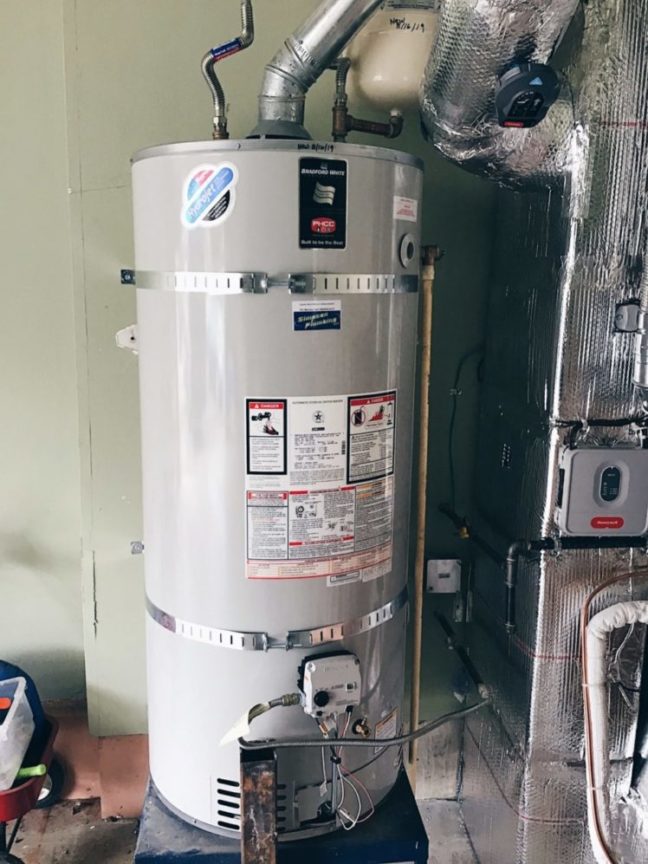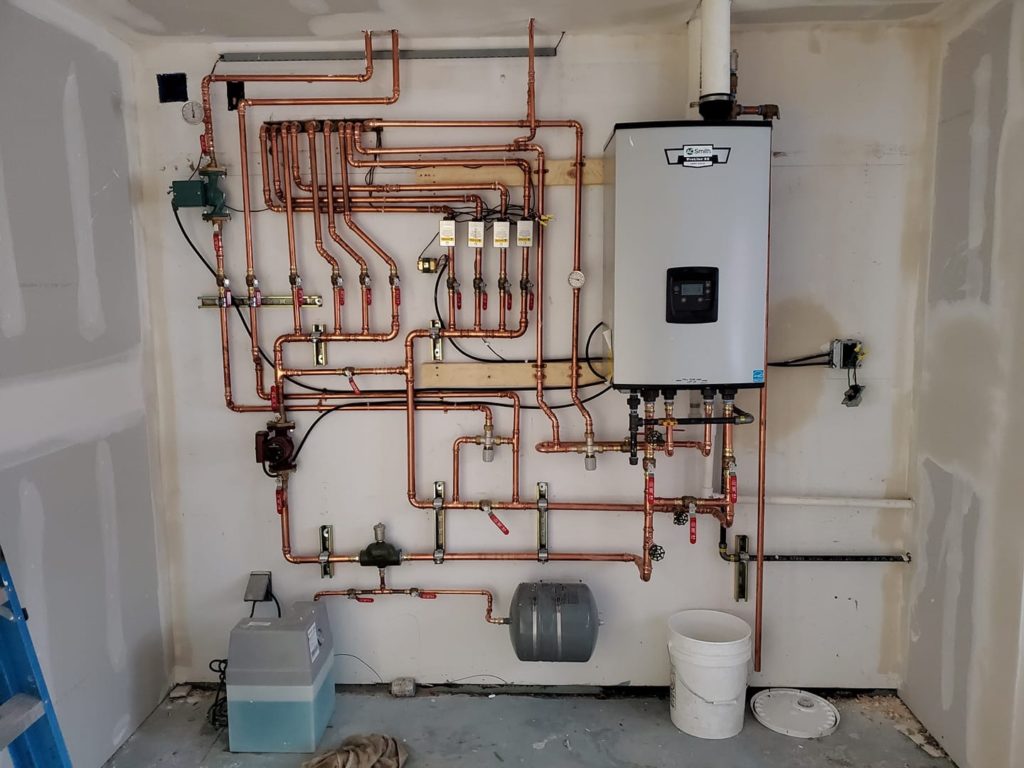Experienced Plumber Denton Offering Fast Plumbing
Experienced Plumber Denton Offering Fast Plumbing
Blog Article
Total Overview to Water HeaterSetup and Substitute
Understanding the ins and outs of water heater setup and substitute is critical for property owners looking for to make certain efficiency and dependability in their warm water supply. From picking the suitable type and dimension to implementing a smooth installation process, a number of aspects must be considered to prevent typical challenges. This overview will certainly give you with the necessary steps and insights to navigate the complexities of this home enhancement task, while likewise highlighting important upkeep techniques that can lengthen the life of your system. As you discover these facets, you might locate on your own reassessing your existing configuration and recognizing locations for renovation.
Kinds of Water Heating Units
When thinking about hot water heater installation and replacement, it is essential to understand the various kinds of hot water heater offered out there. The most common kinds include container water heating units, tankless hot water heater, heatpump water heating systems, and solar water heating units.
Tank hot water heater are conventional systems that store a details volume of warm water, making them easily available when required. They are generally cheaper ahead of time however might sustain higher power expenses with time because of warmth loss. In contrast, tankless hot water heater offer warm water on demand, removing the need for storage space. They are power effective and can conserve space, however their first costs are commonly higher.
Warm pump hot water heater utilize power to transfer heat from the air or ground to warm water, using substantial energy cost savings however calling for even more room and specific setup problems. Solar water heating units harness solar energy to warm water, supplying an environment-friendly alternative with possible lasting price financial savings, although they usually call for a back-up system for over cast days.
Recognizing these choices makes sure notified decisions regarding installment and substitute, dealing with particular needs and preferences.
Picking the Right Size
Selecting the ideal dimension for a hot water heater is essential to ensure optimum performance and efficiency. A device that is as well small will certainly have a hard time to meet family demands, leading to irregular hot water schedule and boosted energy intake. On the other hand, an oversized water heating unit can result in unneeded energy waste and greater utility costs.
To figure out the ideal size, take into consideration the family's peak warm water usage. This can be calculated based on the variety of occupants and their normal hot water requirements. A household of 4 may call for a water heater with a capability of 50 to 80 gallons, depending on the usage patterns, such as synchronised showers and laundry.
Additionally, assess the recuperation rate, which determines just how quickly a heating unit can restore warm water after it has been made use of. For tankless versions, concentrate on the flow price, gauged in gallons per minute (GPM), to ensure it satisfies the house's simultaneous demand.

Installation Process Review

Following, the old system should be disconnected and gotten rid of, making sure to follow neighborhood codes and laws pertaining to disposal. When the old unit is out, the brand-new water heating system can be positioned in place. This action involves attaching the supply of water lines, ensuring that all installations are protected and leak-free.
After developing water connections, it's important to attach the power supply, whether electric or gas, following the maker's instructions thoroughly. Once all links are made, the system ought to be loaded with water, and the power can be turned back on. Ultimately, it is necessary to check for leakages and ensure the hot water heater is working correctly prior to completing the setup procedure.
Common Setup Errors

An additional frequent check out this site error is disregarding to comply with neighborhood codes and regulations. Stopping working to stick to these criteria can not just lead to safety risks yet might also result in costly fines or the requirement for expensive reinstallation.
Stopping working to secure links or utilizing the wrong kind of installations can lead to leakages and water damages. By staying clear of these typical installation blunders, home owners can guarantee their water heating unit runs securely and efficiently, making the most of performance and long life.
Maintenance Tips for Long Life
Appropriate maintenance visit this site of a hot water heater is crucial for its durability and optimal efficiency. Regular inspections and maintenance can avoid pricey repair work and expand the home appliance's lifespan. Begin by inspecting the temperature setup; it should normally be set in between 120 ° F and 140 ° F for optimal power performance and security.
Every 6 months, flush the container to remove debris build-up, which can hinder home heating efficiency and trigger deterioration. To do this, shut off the heating system, connect a pipe to the drainpipe valve, and allow the water run till it is clear.
Anode rods must be inspected yearly and changed when they are corroded. These rods assist stop tank corrosion by drawing in harsh elements in the water.
Furthermore, inspect the stress safety valve on a regular basis to guarantee it is functioning properly. This shutoff is essential for preventing extreme stress build-up within the container.
Finally, take into consideration setting up a professional maintenance check every few years for extensive assessments and maintenance. By sticking to these upkeep pointers, home owners can significantly enhance the efficiency, safety, and lifespan of their water heating units, guaranteeing reputable warm water for many years to find.
Final Thought
In conclusion, correct installation and upkeep of water heating units are crucial for you could check here making certain effectiveness and longevity. By recognizing these vital aspects, house owners can achieve a trustworthy hot water supply while decreasing potential concerns related to water heating system operation.
Comprehending the details of water heating unit installment and replacement is important for homeowners seeking to make sure efficiency and dependability in their warm water supply.Tank water heating units are typical systems that store a certain quantity of hot water, making them easily offered when needed. In contrast, tankless water heating units give hot water on demand, getting rid of the need for storage. Choosing a water heating system that is either also tiny or too large can lead to ineffectiveness, resulting in poor warm water supply or excessive energy usage.
By comprehending these crucial aspects, property owners can accomplish a trustworthy warm water supply while decreasing potential issues related to water heater operation. drain cleaning.
Report this page